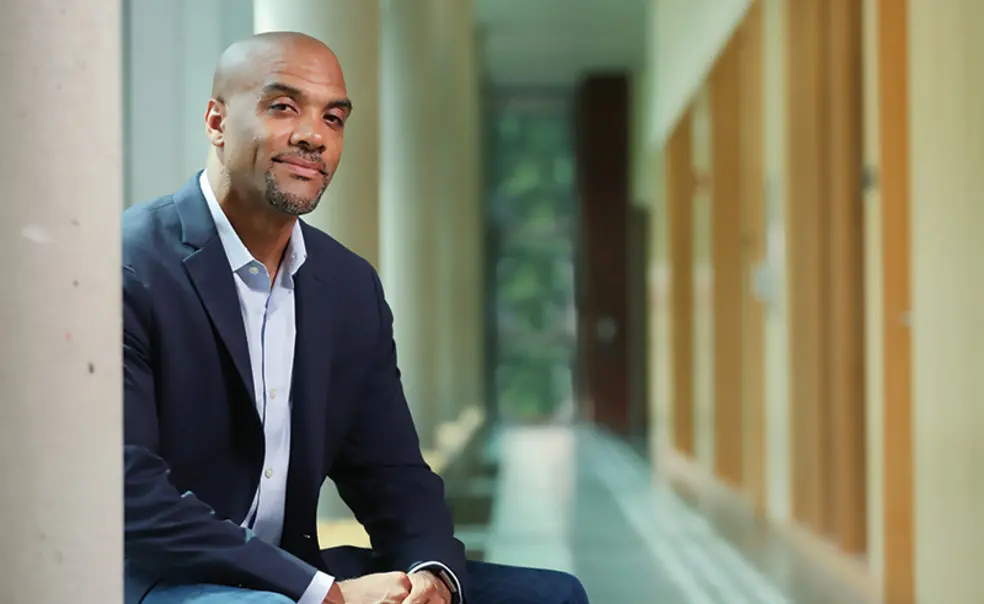Chad Williams *04 Reveals W.E.B. Du Bois’ Inner Conflict
In ‘The Wounded World,’ Williams uncovers Du Bois’ complex feelings about Black military participation

A social scientist, Du Bois grew up in an integrated area, and he wanted other Black Americans to experience his freedoms, plus more. He was aware of the struggles of Black people, but he would witness the cruelty firsthand upon moving to the South. Lynchings were a daily reality, and his environment was a catalyst for his fervent fight for equality. To be truly recognized as full citizens was his goal, and Williams explains that Du Bois believed the best avenue for doing so was through military service.
“How do Black soldiers volunteer to fight and die for this country, while still not being treated as an equal citizen and oftentimes, not even as an equal human being? That’s a question that we’re still trying to find an answer to in 2023.”
— Chad Williams *04
“He was really at the forefront of every major issue related to the struggle for Black freedom and citizenship,” Williams explains, calling him an “emblematic” Black activist. “Many were trying to model themselves after him.”
The book reveals Du Bois’ inner conflict, in his own words: “One ever feels his two-ness, an American, a Negro; two souls, two thoughts, two unreconciled strivings; two warring ideals in one dark body, whose dogged strength alone keeps it from being torn asunder.”
What happened during the war instead was disheartening. Black soldiers came home unable to take advantage of opportunities for veterans, and some were targeted for violent attacks.
The aftermath of the war deeply affected Du Bois and his mission. He started writing about his findings, but ultimately never finished. Williams says that Du Bois struggled personally and intellectually because of the anguish he felt as a result of the war, and that was probably what kept him from finishing. His words might have gone unread if it weren’t for Williams’ research.
Williams, who earned his bachelor’s degree in history and African American studies from UCLA, came to Princeton to pursue a master’s and Ph.D. in history. (On one of his first days, he met his wife, Madeleine Lopez *00, in Firestone Library.) While researching for his thesis, he visited the University of Massachusetts Amherst, where the majority of Du Bois’ papers were archived. “When I visited the library to access these materials, I was given six microfilm reels, which turned out to be an unfinished and unpublished manuscript by Du Bois on the Black experience in World War I,” Williams says.
His desire to write about Du Bois was intense, but at the advice of his adviser, Nell Irvin Painter, Williams prioritized finishing his dissertation, which focused on American soldiers and World War I. He says that his graduate work gave him the confidence to tackle such a “big and complicated” subject like Du Bois.
The 800 pages took Du Bois over 20 years to compile. Williams was certain that the world needed the insight contained in those pages. He wanted readers to interact with DuBois’ thoughts on the aftermath of the war for African Americans.
Williams is confident that quite a bit can be gleaned from The Wounded World. On top of giving insight into the less public years of Du Bois’ life and career, it confronts important questions about serving a country when you aren’t treated as an equal citizen. “How do Black soldiers volunteer to fight and die for this country, while still not being treated as an equal citizen and oftentimes, not even as an equal human being?” he asks.” That’s a question that we’re still trying to find an answer to in 2023.”










No responses yet